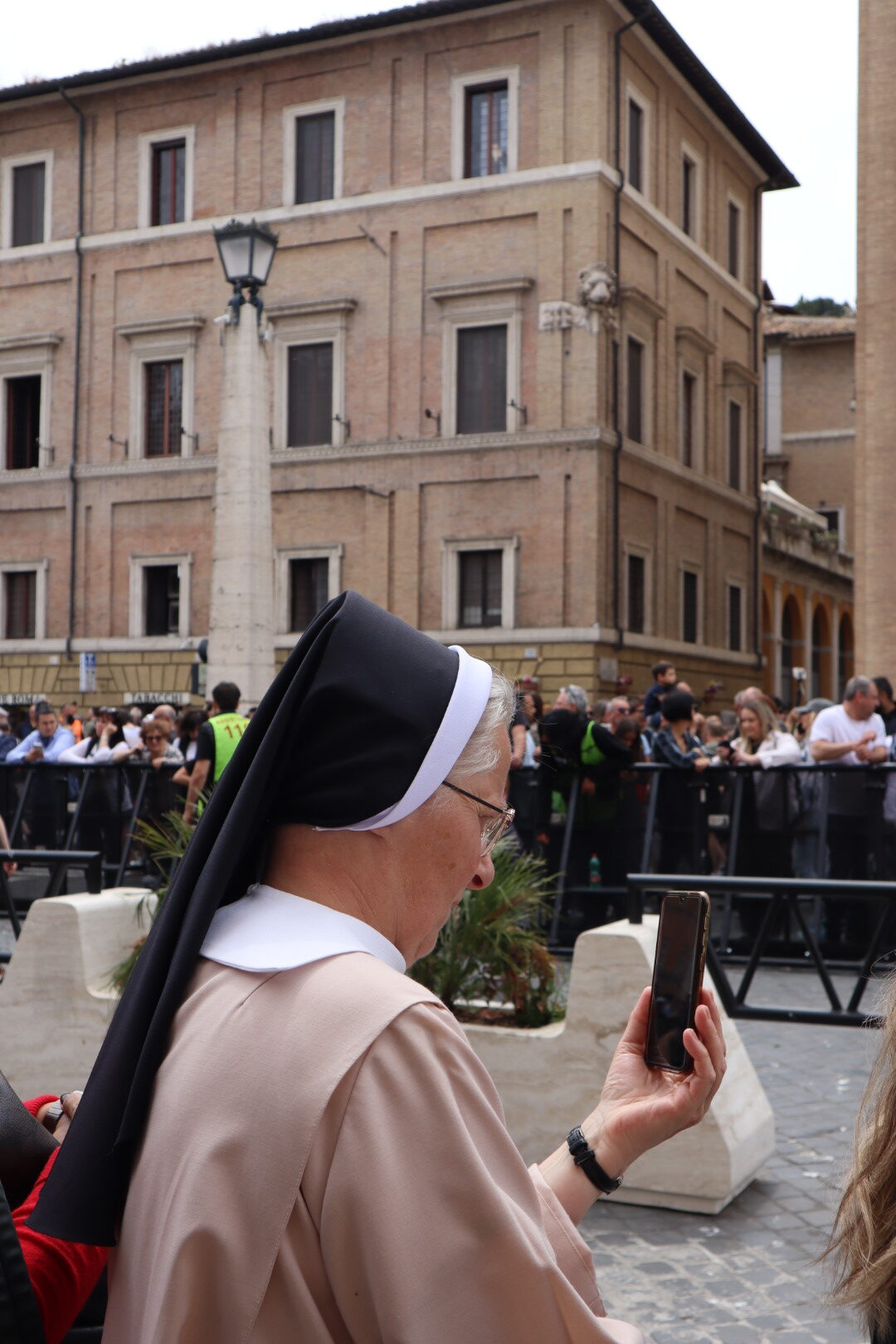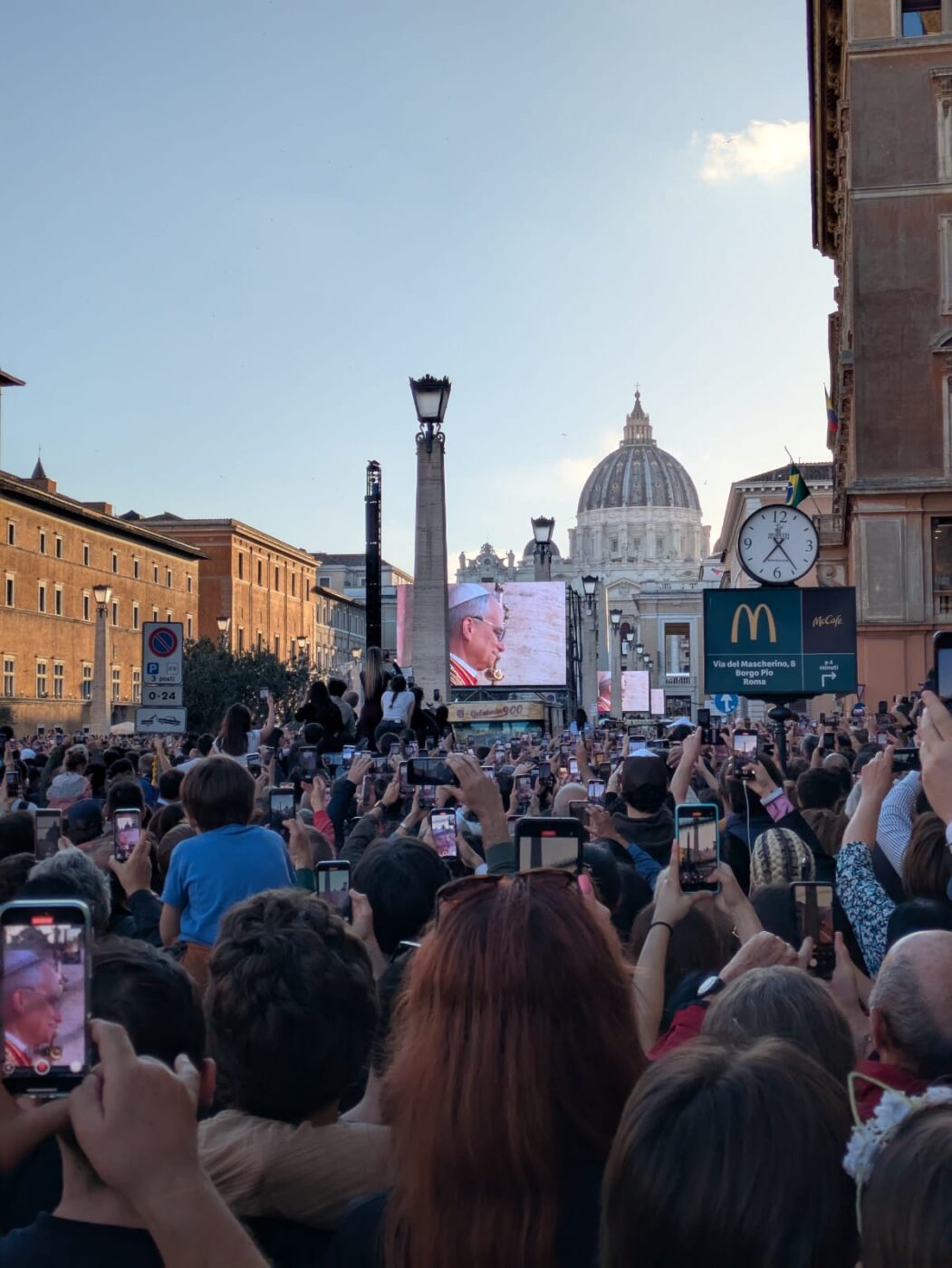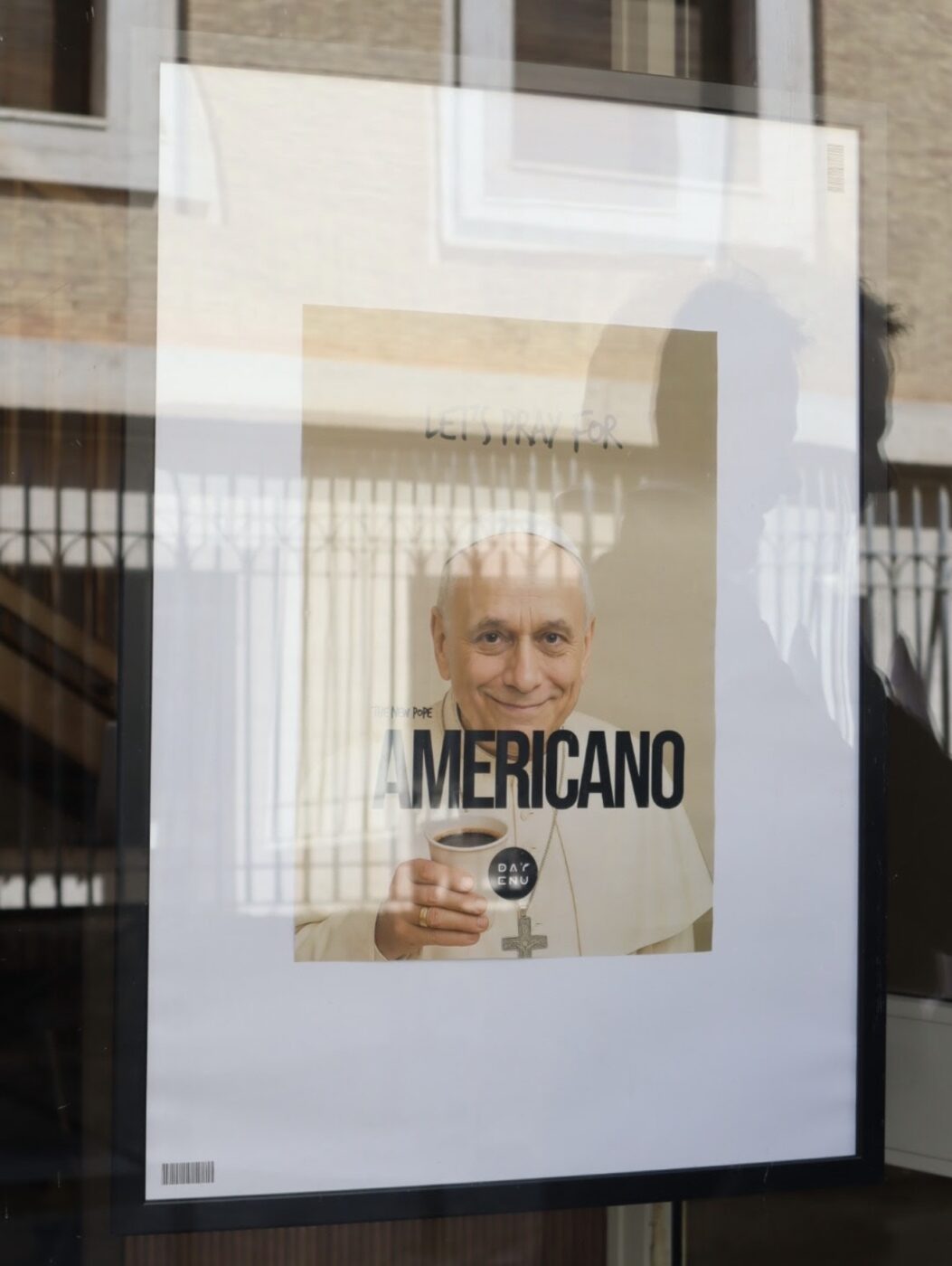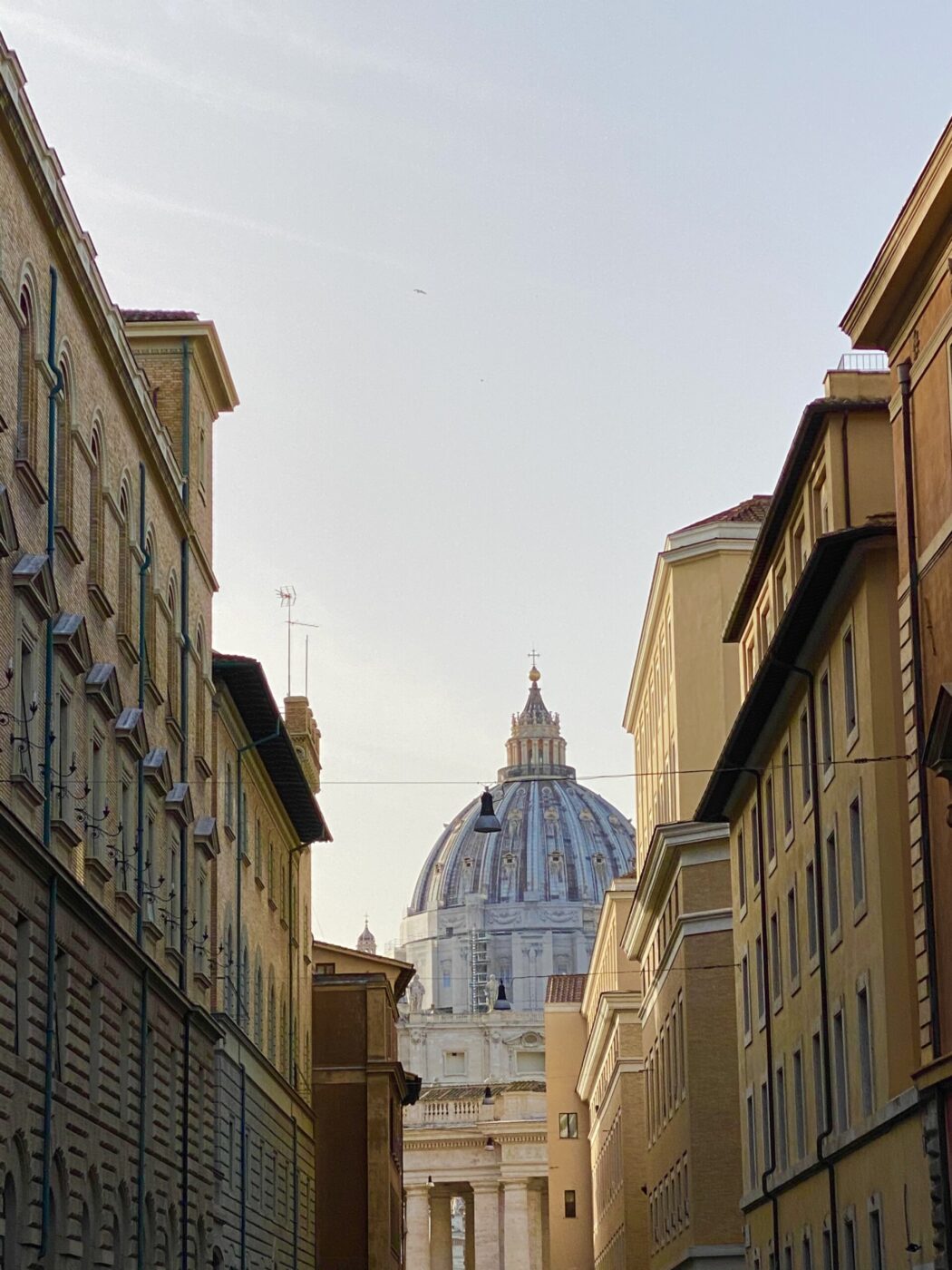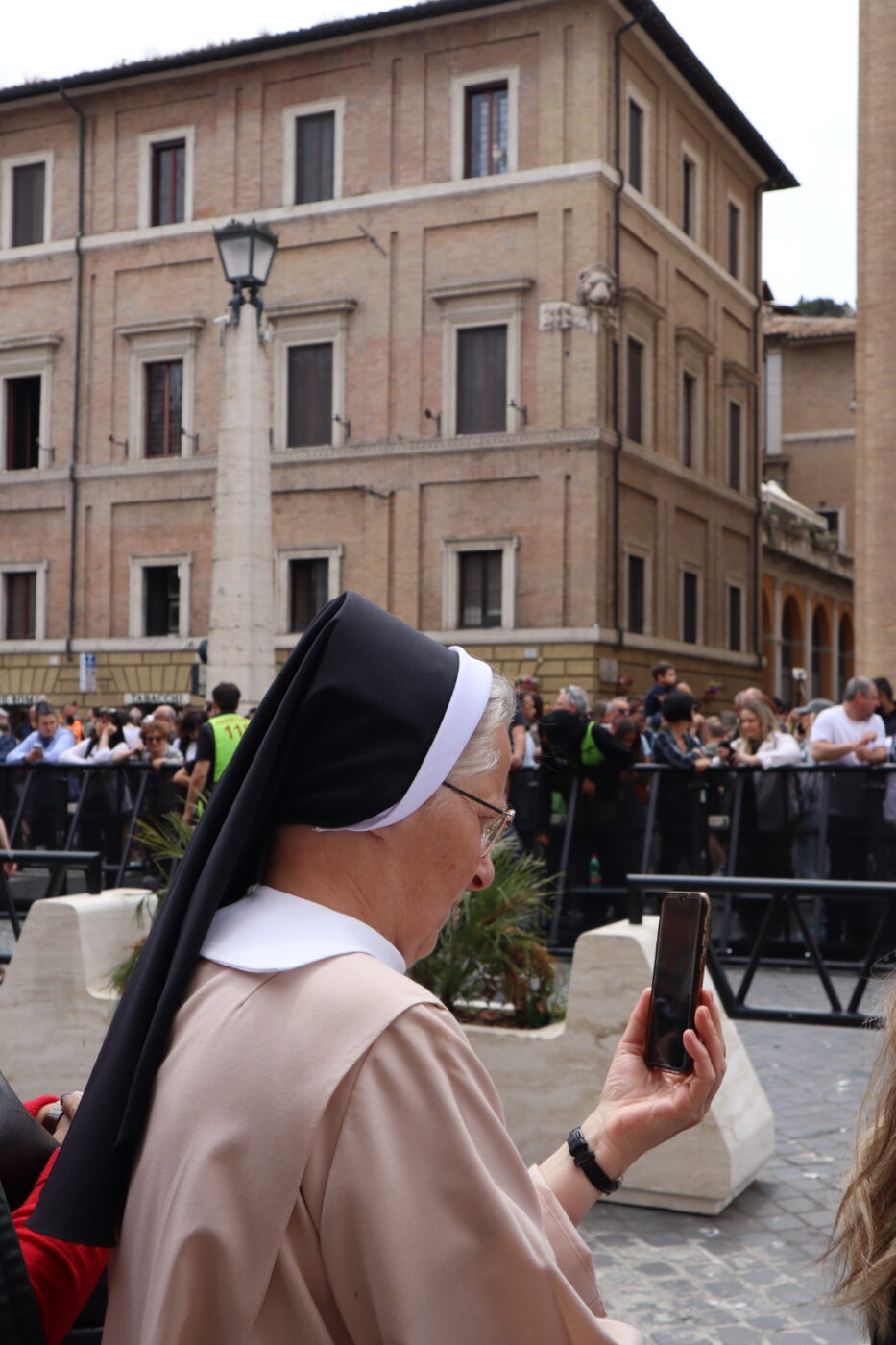After the death of the beloved-by-many Pope Francis on Easter Monday, the world awaited the name of the next Pope with something between agony and excitement.
In total, 133 cardinals descended on the city of Rome and closed themselves in for a two-day voting process that culminated in Thursday evening’s white smoke. But when Cardinal Dominique Mamberti announced the next Pope, that is, the Cardinal Robert Francis Prevost, who chose the name Pope Leo XIV, the crowd seemed mostly, at first, stunned. Two men in front of me turned to give each other slightly confused looks, their brows furrowed and lips curled. A woman near me in the crowd called out: “Ma è un americano?” (“But he’s an American?”)
That tone would go on to define the entire night, as Prevost made history as the Catholic Church’s first Pope from the United States—the 69-year-old was born in Chicago, though he has spent much of his career as a missionary and bishop in Peru.
But what an American Pope means in this era of U.S. politics, in which President Donald Trump toggles back-and-forth on tariffs and has heated talks with Ukrainian president Volodymyr Zelensky, remains to be seen. A group of Italian women I spoke with after the announcement were waiting to reserve full judgment, noting that his speech had left a positive impression. Still, they said, they were disappointed by an American in the time of Trump.
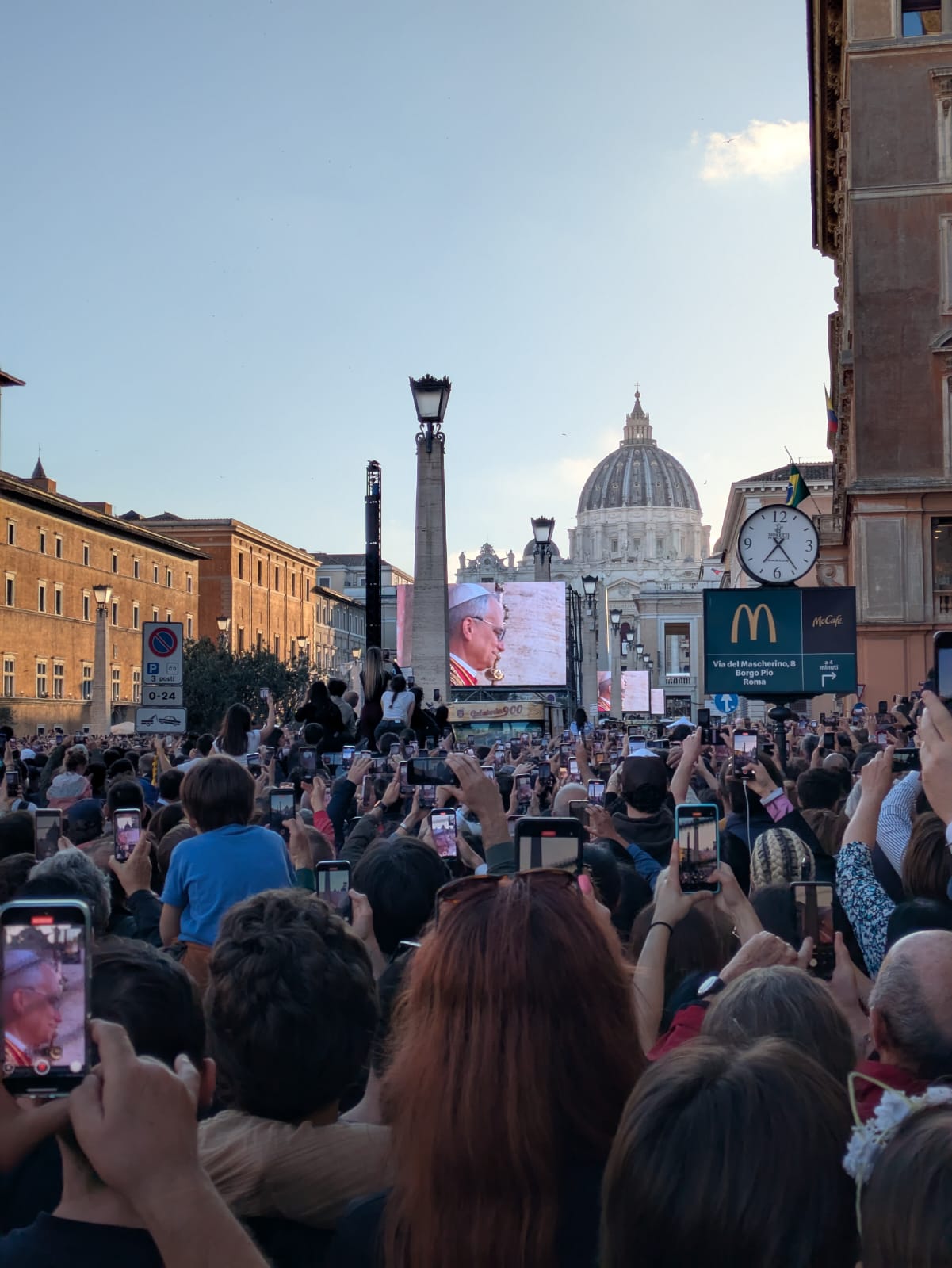
The Vatican on Thursday evening; Photo by Susie Anderson
This sense of gloom was not, however, universal. A Peruvian member of the church, who noted that she did not know Cardinal Prevost previously, said that she was “happy.” The fact that Prevost had spent so much time in Latin America signified to her that he would continue in some way the legacy of Pope Francis.
Other members of the church, like a nun from Tanzania who had been in Rome for six months, were more circumspect.
“We have to pray for the church and also for him,” she said. “The new mission is difficult, because there are so many things going on in the world now.”
In the day after the Pope’s announcement, the various Italians I surveyed had different opinions. They were altogether less concerned with the fact that Pope Leo XIV was American and more with what his speech might say about his way of being. One was visibly moved.
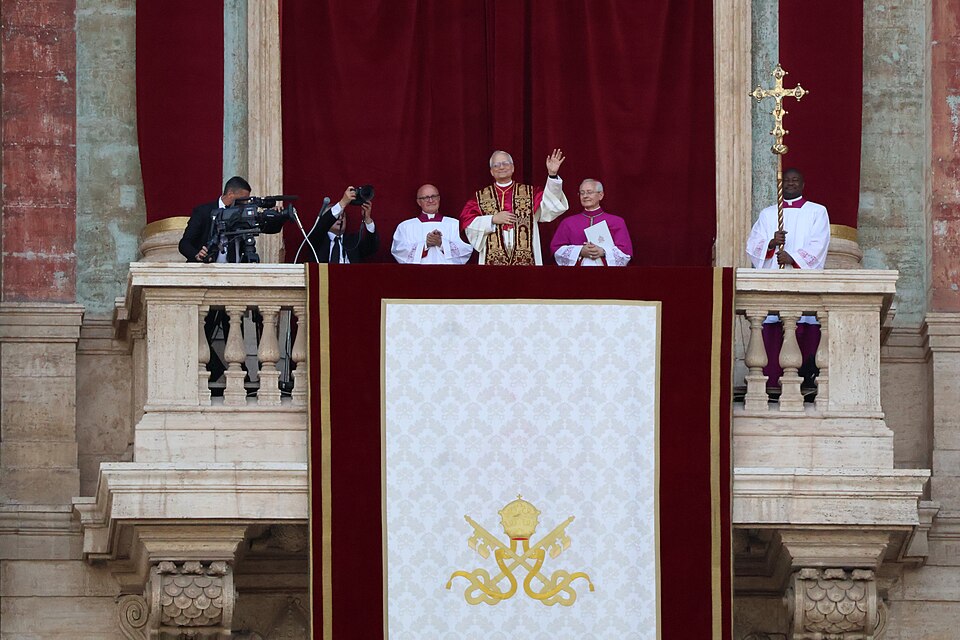
Pope Leo XIV greeting the crowd from the loggia; Photo by Edgar Beltrán / The Pillar via Wikimedia Commons
“He really reminded me of a young Pope John Paul II,” said a 51-year-old woman born and raised in Rome who considers herself a Catholic but not necessarily a churchgoer. “In his approach, in his intimacy, he took into account not just the Latin form, but human sensitivity and empathy, and he blessed Rome, Italy, the world.”
The speech, which opened with the term “peace” and used the term “peace” over and over, was a linchpin also for Italians on the fence. A 38-year-old Sicilian who now lives in Rome told me that she was initially surprised at the announcement of the Pope, having heard his name in the various “papabili” but not thinking of him as one of the frontrunners.
“At first, before seeing him and hearing him speak, knowing that he was an American Pope, I did have a certain reaction,” she said. “Thinking about the whole world and that the previous Pope was Argentinean, I would have expected a Pope from a more ‘humble’ place or one who would be more unifying.”
But his very speech served as a comforting balm. He had a friendly face, she said, a sentiment echoed by the very same woman in the crowd that had expressed surprise at his nationality, and a “kind and empathetic manner.”
And while the initial Italian reaction may have been one of fear and surprise, by day’s end, there appeared to be some alleviation.
The 51-year-old put it succinctly: “He will be a great Pope.”
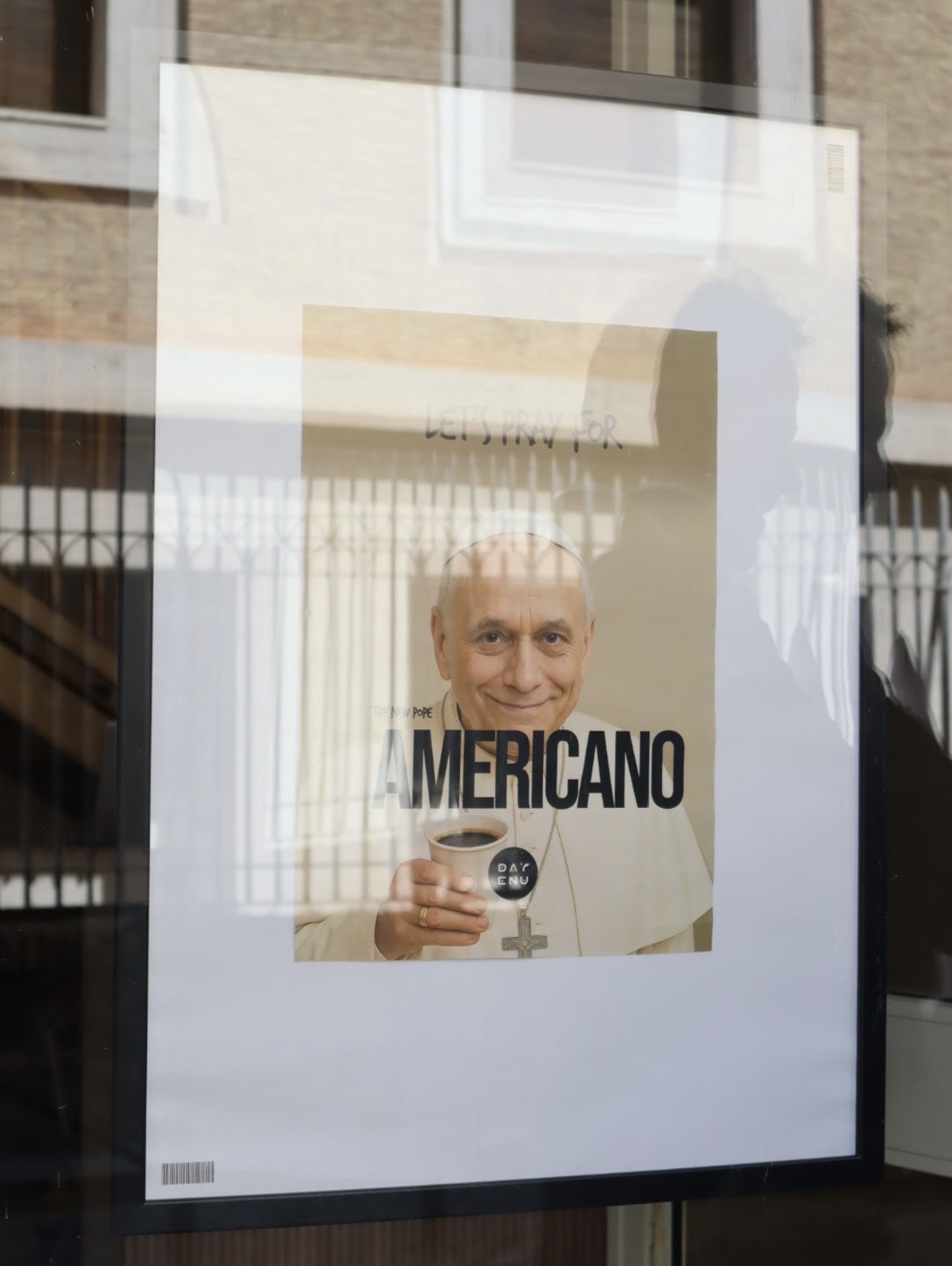
"Let's pray for Americano"; Photo by Marie Kostiguian
By Sunday, when Pope Leo XIV gave his first “Regina Caeli” prayer to masses of people, the Italians, and the entire crowd, seemed to have happily adjusted to their new reality. Thousands of pilgrims flooded the piazza to watch the Pope give his first Sunday address to the faithful in St. Peter’s after the announcement of Thursday’s election. Noting the 80th anniversary of the end of World War II in Europe, he mentioned ongoing global conflicts, calling for an “authentic, just and lasting peace” in Ukraine and an “immediate ceasefire” in Gaza and praising the ceasefire between India and Pakistan.
“But how many other conflicts there are in the world,” he said in his speech, adding the need for a “miracle of peace.”
The atmosphere at Sunday’s prayer was one of excitement and anticipation, the air tense with the feeling of wanting to see what the new papacy will bring. At the end of his speech, chants broke out of “Viva il Papa”, and calls of “Papa Leone” came from pockets of the audience.
In the aftermath, Italians and pilgrims milled about with family and friends, discussing the day’s events.
“Long live Father Robert,” said 58-year-old Angela Russo. “That he is a great missionary for the church and for all of us great Catholics.”
Others, like Emilio Didonè, were simply gratified to be among the onlookers witnessing the first days of the new pope.
“It was a great excitement to be here today,” he said. “We can say that we were here.”
Some, like 60-year-old Alessandra Savelli, had a personal connection to the pope—she is, after all, a member of the Savelli family that runs the eponymous Catholic gift shop right outside of St. Peter’s Square. The business is located in the same general complex as the Order of St. Augustine, of which Pope Leo XIV is a part.
“I am really happy about this pope,” Savelli said. “He is an Augustinian pope—I’ve known them since I was a child and they are wonderful people. They’ve studied, they are smart and kind and they are really exceptional people. I’m so happy for Pope Leo.”

